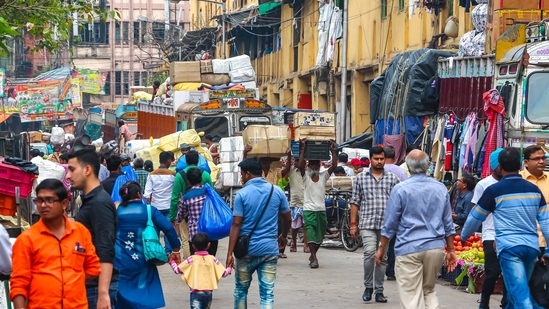Law ministry counters Oppn charge on simultaneous polls
The Union law ministry asserts that simultaneous Lok Sabha and state elections are not undemocratic, addressing concerns ahead of the committee's next meeting.
The Union law ministry has informed the joint committee of Parliament examining the bills on one nation, one election (ONOE) that holding simultaneous polls to the Lok Sabha and state legislative assemblies is not undemocratic and does not undermine the federal structure of the country. The panel will hold its next meeting on Tuesday.

Responding to a set of queries posed by the members of the joint panel, the legislative department in the law ministry is learnt to have asserted that simultaneous elections to the Lok Sabha and state assemblies were held in the past before the cycle was broken due to various reasons, including imposition of President’s rule in some states.
Opposition parties have criticised the ONOE bills, calling them anti-democratic in nature and alleging they violate the federal structure. They maintained that such a bill cannot be implemented without the approval of states.
The reply from the law ministry assumes significance as it comes right before the next meeting in which the panel members will interact with legal experts. Niten Chandra, secretary of the high-level committee on simultaneous polls, justice Ritu Raj Awasthi, the chairperson of the 22nd law commission, justice UU Lalit, the former Chief Justice of India (CJI), and EM Sudarshan Natchiappan, a former lawmaker, will appear before the panel on Tuesday.
The elections to the Lok Sabha and all state assemblies were held simultaneously from 1951 to 1967. However, this cycle of synchronised elections was disrupted in 1968 and 1969 due to the premature dissolution of some state assemblies.
State assemblies have faced similar disruptions over the years. Premature dissolutions and term extensions have become a “recurring challenge”, a government explainer on ONOE had earlier said.
“These developments have firmly disrupted the cycle of simultaneous elections, leading to the current pattern of staggered electoral schedules across the country,” it observed.
To be sure, the Law Commission and the Election Commission in their reports had advocated simultaneous polls, arguing that it saves money, improves governance and reduces the period under the model code of conduct imposed by the poll body.
Citing a report of the high-level committee on one nation, one election headed by former president Ram Nath Kovind, the explainer said simultaneous polls promote consistency in governance.
Some of the replies to the queries raised by the lawmakers from the joint committee will be sent by the Election Commission.






